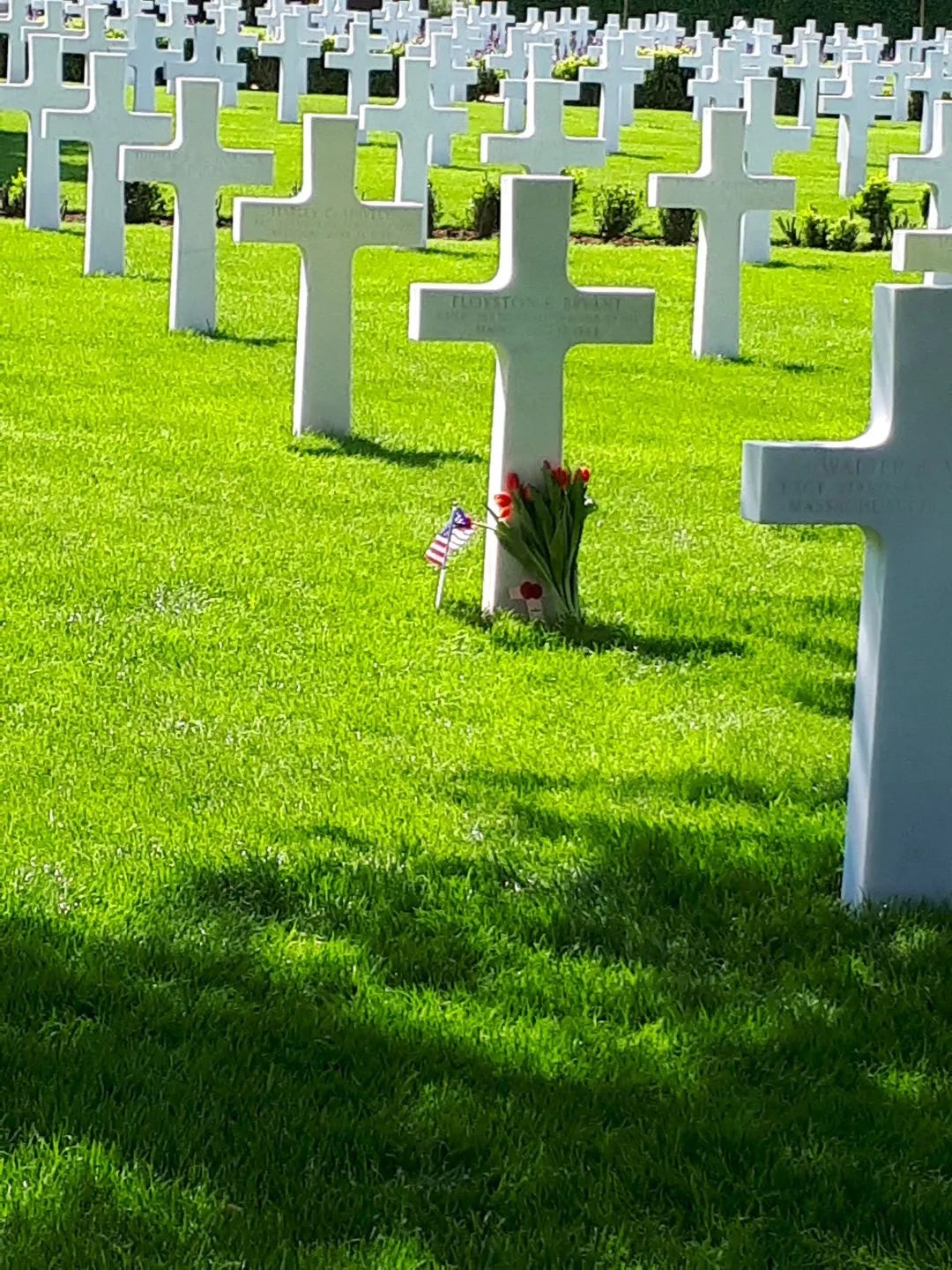Tomorrow is Memorial Day, the day Americans have honored since 1868, when we mourn those military personnel who have died in the service of the country—that is, for the rest of us.
For me, one of those people is Beau Bryant.
When we were growing up, we hung out at one particular house where a friend’s mom provided unlimited peanut butter and fluff sandwiches, Uno games, iced tea and lemonade, sympathetic ears, and stories. She talked about Beau, her older brother, in the same way we talked about all our people, and her stories made him part of our world even though he had been killed in World War II 19 years before we were born.
Beau’s real name was Floyston, and he had always stepped in as a father to his three younger sisters when their own father fell short.
When World War II came, Beau was working as a plumber and was helping his mother make ends meet, but in September 1942 he enlisted in the Army Air Corps. He became a staff sergeant in the 322nd Bomber Squadron, 91st Bomb Group, nicknamed “Wray’s Ragged Irregulars” after their commander Colonel Stanley T. Wray. By the time Beau joined, the squadron was training with new B-17s at Dow Army Airfield near Bangor, Maine, and before deploying to England he hitchhiked three hours home so he could see his family once more.
It would be the last time. The 91st Bomb Group was a pioneer bomb group, figuring out tactics for air cover. By May 1943 it was experienced enough to lead the Eighth Air Force as it sought to establish air superiority over Europe. But the 91st did not have adequate fighter support until 1944. It had the greatest casualty rate of any of the heavy bomber squadrons.
Beau was one of the casualties. On August 12, 1943, just a week before his sister turned 18, while he was on a mission, enemy flak cut his oxygen line and he died before the plane could make it back to base. He was buried in Cambridge, England, at the Cambridge American Cemetery and Memorial, the military cemetery for Americans killed in action during WWII. He was twenty years old.
I grew up with Beau’s nephews and nieces, and we made decades of havoc and memories. But Beau’s children weren’t there, and neither he nor they are part of the memories.
Thinking about our untimely dead is hard enough, but I am haunted by the holes those deaths rip forever in the social fabric: the discoveries not made, the problems not solved, the marriages not celebrated, the babies not born.
I know of this man only what his sister told me: that he was a decent fellow who did what he could to support his mother and his sisters. Before he entered the service, he once spent a week’s paycheck on a dress for my friend’s mother so she could go to a dance.
And he gave up not only his life but also his future to protect American democracy against the spread of fascism.
I first wrote about Beau when his sister passed, for it felt to me like another kind of death that, with his sisters now all gone, along with almost all of their friends, soon there would be no one left who even remembered his name.
But something amazing happened after I wrote about him. People started visiting Beau’s grave in England, leaving flowers, and sending me pictures of the cross that bears his name.
So he, and perhaps all he stood for, will not be forgotten after all.
May you have a meaningful Memorial Day.
[Photo by Carole Green.]

Written by Heather Cox Richardson as part of her series “Letters from an American.” You can subscribe to it here.
Comments







